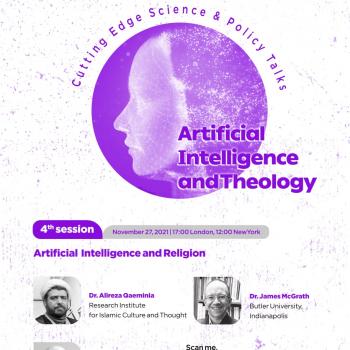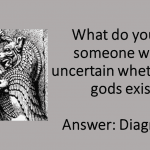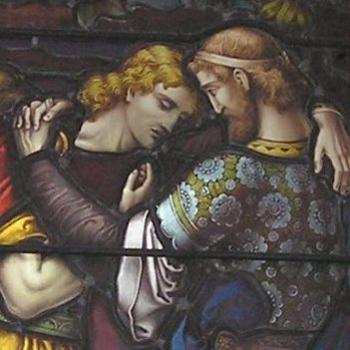As the first movement of his choral and orchestral work titled Creation/Creator, Christopher Theofanidis used for the libretto a poem by the famous Sufi mystic Rumi (translated by Coleman Barks):
Elephant in the Dark
Some Hindus have an elephant to show.No one here has ever seen an elephant.They bring it at night to a dark room.One by one, we go in the dark and come outsaying how we experience the animal.One of us happens to touch the trunk.A water-pipe kind of creature.Another, the ear. A very strong, always movingback and forth, fan-animal. Another, the leg.I find it still, like a column on a temple.Another touches the curved back.A leathery throne. Another the cleverest,feels the tusk. A rounded sword made of porcelain.He is proud of his description.Each of us touches one placeand understands the whole that way.The palm and the fingers feeling in the darkare how the senses explore the reality of the elephant.If each of us held a candle there,and if we went in together, we could see it.
This poem offers a wonderfully different and fresh perspective on the classic parable of the elephant and the blind men. I have long felt that the view articulated in it is an important clue to how to find a third way, one that leads out from the apparent impasse between Enlightenment modernism’s overconfident claims to knowledge and extreme postmodernism’s insistence that we cannot know for certain.
I can’t recall who put it this way, but someone has said that “Just because we all have biases, that doesn’t mean that all we have are biases.” What we see together despite our biases, through our different lenses, and from our different vantage points, has a greater chance of being correct than anything one individual or even one group may perceive or conclude.
Some call it “critical realism.” But it seems to me to me that it deserves a more inspiring name than either that or “collective elephant perceptionism.”
Theofanidis’ piece Creation/Creator incorporates a wide array of texts about creation, ranging from the Rig Veda to St. Augustine to Sefer Yetzirah to a retelling of Genesis by poet James Weldon Johnson.
For something almost entirely unrelated, see the analogy between moral reasoning and elephant-steering in the recent post by Chaplain Mike.














